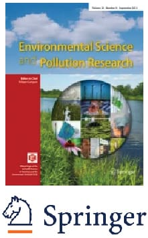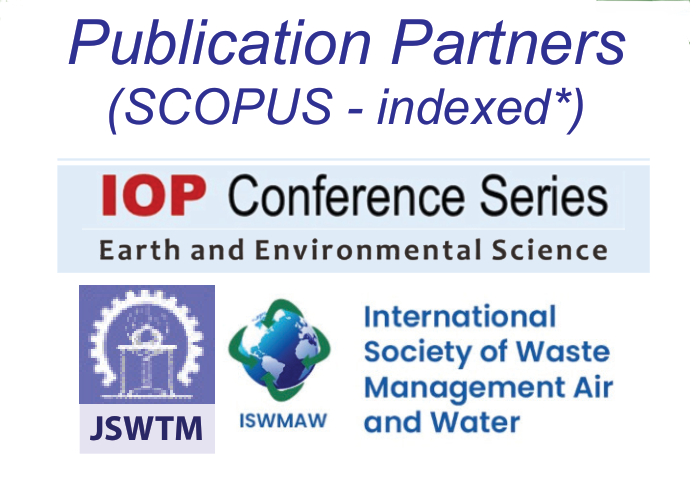




About
Bannari Amman Institute of Technology is an autonomous, self-financing engineering college approved by AICTE, New Delhi, and affiliated to Anna University, Chennai. Located on the banks of the river Bhavani, BIT offers 12 UG, 2 PG and MBA programmes, with 13 departments offering PhD programmes. The institute has well-established academic and research facilities with many state-of-the-art initiatives. The campus has excellent infrastructure built in collaboration with industry and research partners. The spacious and earth-connected buildings with their landscaped courtyards and pathways are designed to emphasise business ethics and the characteristics of an excellent learning centre. The campus houses well-planned academic blocks, computer centres,lecture halls, libraries, laboratories, conference rooms, staff quarters, residence halls and student centres.
The Department of Agricultural Engineering was established in 2015 and offers a 4-year B.Tech degree programme in Agricultural Engineering. It is the first Agricultural Engineering department in India to receive full-NBA accreditation (6-year) in the first attempt. The department is equipped with state-of-the-art laboratory facilities and has qualified faculty and technical staff. To impart the knowledge on the aspects of crop production from seed to harvest, the department has a 10-acre farm with a well-equipped laboratory for agro- meteorology and plant breeding. The department provides hands-on training to the students in the latest technologies in agricultural engineering.
Beholding at a time when the global agricultural community is grappling with challenges such as soil degradation, climate change, and food security, it is important to explore the role of cutting-edge technologies and scientific advancements in promoting regenerative agriculture. In order to provide a critical platform for discussing innovative approaches to revitalize agricultural practices in India and beyond, the second national conference on Advances in Science and Technology for Regenerative Agriculture [ASTRA-2024] aims to bring together leading scientists, researchers, students, policymakers, and practitioners to collaborate for developing sustainable solutions for regenerative agriculture. Inspired by the successful delivery from the previous edition (ASTRA-2023), the present version [ASTRA-2024] expects to enhance the intellectual collaboration for meaningful research outcomes for the betterment of the world.
Keynote Speakers

University of Prince Edward Island, Charlottetown, Prince Edward Island, Canada
https://www.upei.ca/ | [email protected] | https://www.upei.ca/profile?u=sthiruppathi | https://www.upei.ca/profile?u=sthiruppathi

Environmental Sciences and Sustainable Engineering Centre,
Department of Civil Engineering,
Indian Institute of Technology, Palakkad, India.
https://iitpkd.ac.in/ | [email protected] | https://iitpkd.ac.in/people/athira
Committees
Conference Technical Committee
- Dr. Senthilkumar Thiruppathi, University of Prince Edward Island, Canada
- Dr. Chyngyz Erkinbaev, University of Manitoba, Canada
- Dr. Gabriela JS, San Jose State University, USA
- Dr. Manikckavasagan A, University of Guelph, Canada
- Dr. Saheela Beegum, Nebraska Water Center, USA
- Dr. Cibin Raj, Penn State University, USA
- Dr. S Mohanasundaram, Asian Institute of Technology, Thailand
- Dr. Ambika S, Indian Institute of Technology, Hyderabad
- Dr. Berlin M, National Institute of Technology, Arunachal Pradesh
- Dr. Selvi Subramanian, PSG College of Technology Coimbatore
- Dr. T Senthilkumar, ICAR-CIAE-RC, Coimbatore
- Dr. R Mahendran, TNAU, Coimbatore
- Dr. T Krishnakumar, CTCRI, Thiruvananthapuram
- Dr. P Venkatachalam, TNAU (Retd.), Coimbatore
Conference Organizing Committee
Organizing Secretary
- Dr. V Chelladurai, Assoc. Prof. & Head, Agri Engg, BIT
Convener
- Dr. M Vasudevan, Assoc. Prof., Agri Engg, BIT
- Dr. S Deepankumar, Asst. Prof., Agri Engg, BIT
Coordinators
- Dr. V C Uvaraja, Prof., Agri Engg, BIT
- Dr. D Praveen Kumar, Asst. Prof., Agri Engg, BIT
- Dr. S Raghul, Asst. Prof., Agri Engg, BIT
- Prof. J. Archana, Asst. Prof., Agri Engg, BIT
- Prof. D. Ananthi, Asst. Prof., Agri Engg, BIT
- Prof. K. Muthukumaravel, Asst. Prof., Agri Engg, BIT
Call for Papers
We encourage academicians, students, and research scholars to submit their original technical papers on a variety of topics related to the main themes of the conference as given below for presentation and possible publication.
- Theme#A: Agronomics, Ecology and Environmental Sciences [AEES]
- Theme#B: Crop Production and Management [CPM]
- Theme#C: Digital and Precision Farming [DPF]
- Theme#D: AI in Smart Agriculture [AISA]
- Theme#E: Food and Agricultural Processing [FAP]
- Theme#F: Renewable Energy and Biomass [REB]
- Theme#G: Agricultural Water and Soil Management [AWSM]
Abstract Submission Guidelines
The authors are requested to initially submit an abstract of 100-150 words covering the problem statement, objectives, methodology and findings of their research work. The title page should essentially contain the title, author details (full name and affiliation of all authors), abstract, key words (max. 5), and the contact information of the corresponding author. The abstract may be submitted using the link given below.
Conference Presentation Guidelines
The corresponding author of the accepted abstract may register for the conference presentation using the link given below. At least one author of the registered abstract must be available for the presentation in order to get a participation certificate. Please note that only accepted and registered abstracts will be allowed for the conference presentation under the scheduled theme.Journals of Interest for Publication
- IOP Conference Series: Earth and Environmental Science
- Journal of Solid Waste Technology and Management
- ASEAN Journal on Science and Technology for Development
Publications
Paper Submission Guidelines
All accepted and registered abstracts will be published in the conference proceedings with ISBN registration. Further, upon acceptance of the abstract, the corresponding author may submit the full-length manuscript prepared in the given template as per the journal requirements. The selected papers will be proposed for publishing in good quality journals based on the willingness of the authors. All papers submitted as per the guidelines will undergo double-blinded peer review and the acceptance will be based on the relevance, originality, contribution, validity, and presentation. Based on the recommendation from the editorial board, the camera-ready paper must be submitted for final acceptance.
Registration
Conference Registration Details
The registration fee should be paid in Demand Draft in favour of “The Principal, Bannari Amman Institute of Technology” payable at Sathyamangalam, or through Online payment mode with the following details.
- A/C Name: BIT - Center for Advance Studies
- A/C No.: 911010036862582
- Account Type: Savings Account
- Branch: Axis Bank, Sathyamangalam
- IFSC Code: UTIB0000368
Upon payment of registration fee, the corresponding author should formally register using the link given in the website. The abstract ID and payment reference ID must be clearly mentioned during the registration.
Conference Fee Details
- Registration fee for presenting authors (inclusive of GST)
- UG and PG students: INR 200/-
- Research Scholars and Faculty: INR 500/-
- Persons from Industry and Research Labs: INR 750/-
Important Dates
- Last Date for Submission of Abstract: 20.11.2024
- Last Date for Online Registration: 25.11.2024
- Last Date for Full Paper Submission: 30.12.2024
